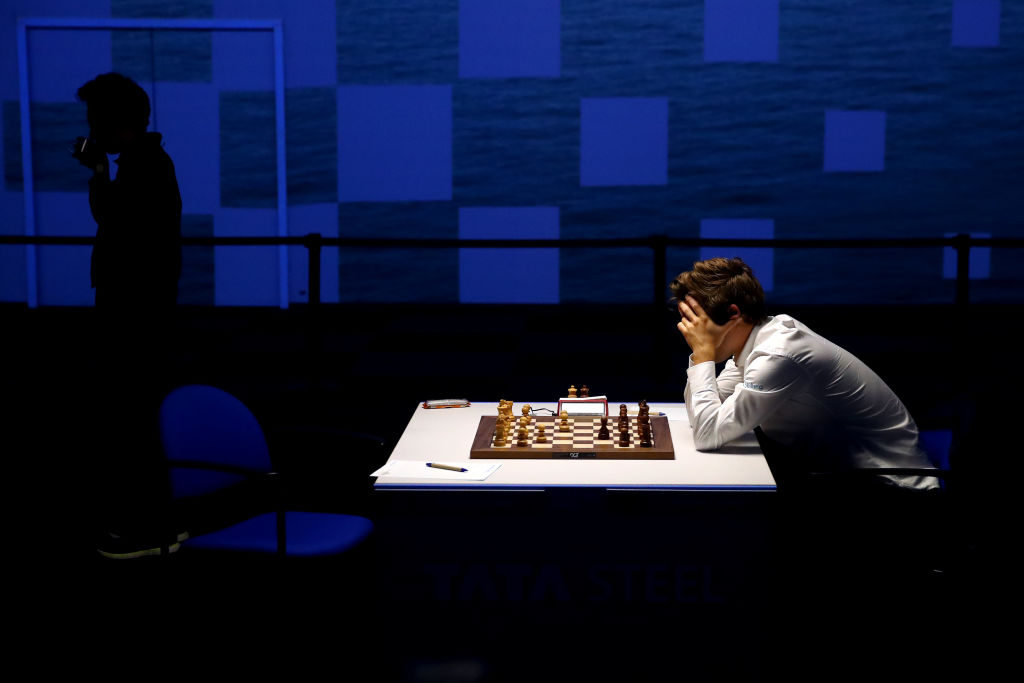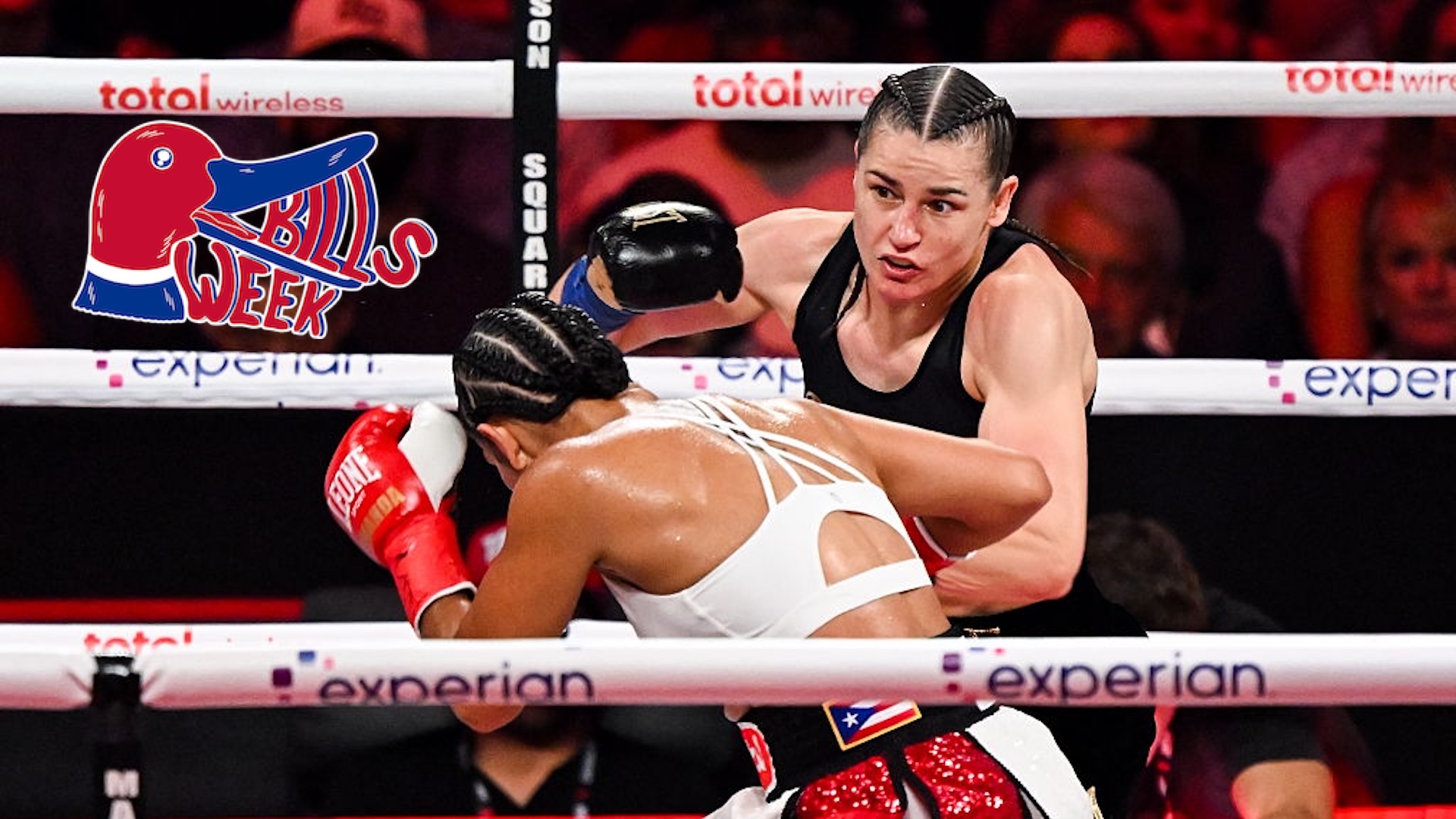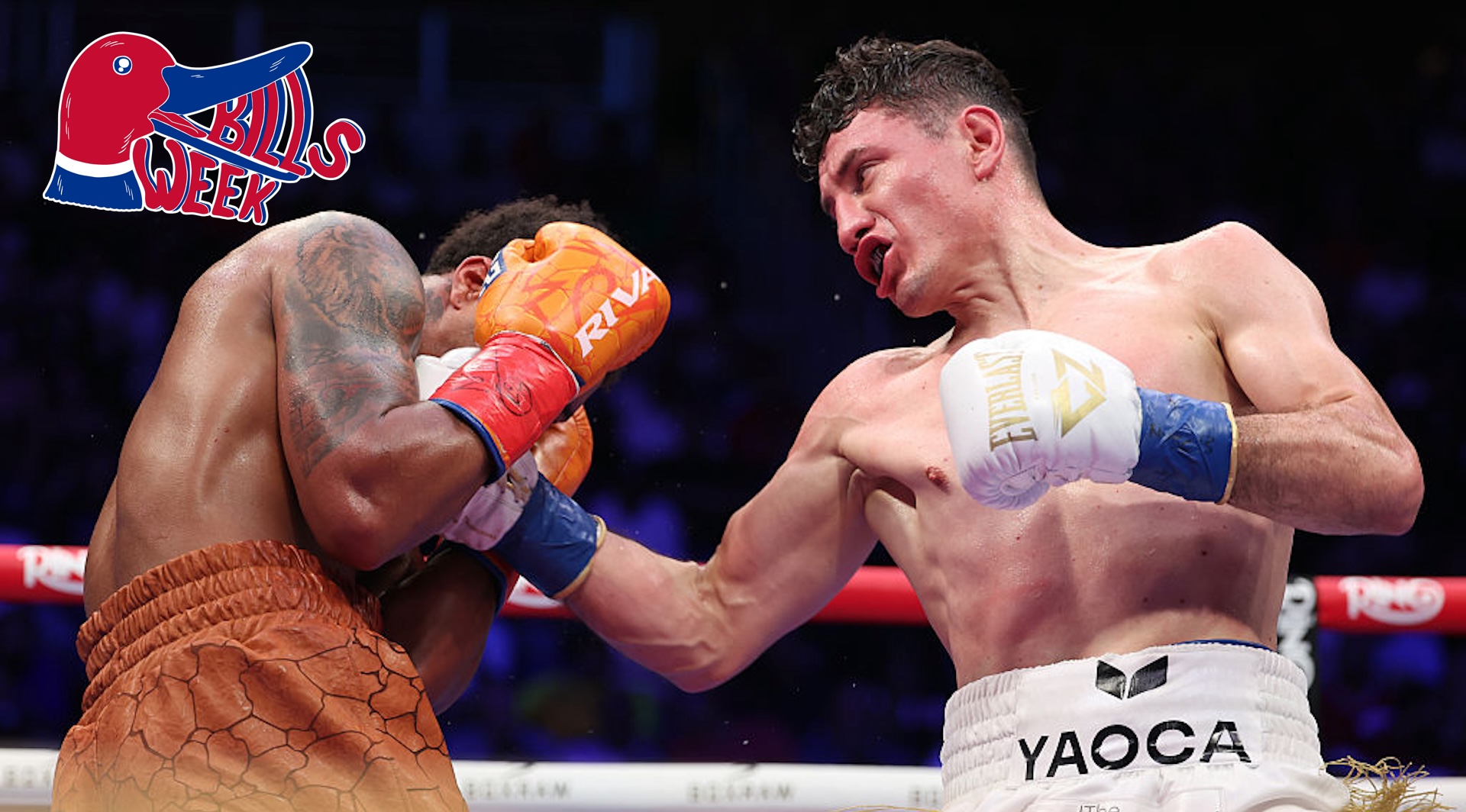Magnus Carlsen will not defend the title of World Chess Champion that he has held since 2013, paving the way for either Ian Nepomniachtchi or Ding Liren to win chess’s highest honor. The best player of all time hilariously chose International Chess Day to advise the chess world via his new gambling company-sponsored podcast that although he will keep playing a full schedule of regular tournaments, he is simply not motivated to play another world championship match. The next era will see Carlsen’s shadow loom over his successor for as long as he remains the dominant force that he has been for more than a decade.
Magnus Carlsen has played and won five world championship matches, first snatching the title from Viswanathan Anand in crushing fashion nine years ago then defending it four subsequent times, most recently against Ian Nepomniachtchi in a beatdown for the ages in late 2021. Carlsen has long had an ambivalent relationship with the world championship process: He did not compete in the 2011 cycle when he was already world No. 1; he only committed to his ultimately successful 2013 tilt at the last minute; and he publicly commented that each of the last two matches might be his last. He’s now made good on that promise, stating that he won’t defend his crown in the squared octagon in 2023.
Preparing for a world championship match—a series of 14 games against a single opponent over several weeks—is serious business. Preparing for the first few moves alone is incredibly demanding. The opening is the most important phase of chess: You’ve got to play an opening in every game, whereas you may only need to play (for example) a knight-and-two-pawns endgame once a year, so preparation is key. With the advent of supercomputers, opening theory has evolved so quickly and in such counter-intuitive directions as to be positively unreasonable. Alexander Grischuk once said of the influence of supercomputers openings, “It used to be like memorising a poem, because it would be some moves you found yourself, then when computers just appeared it would be like memorising a poem not [in] your native language, and nowadays it's like memorising random numbers—it's impossible, there’s a lot of moves you just don’t understand.”
World championship contestants prepare with teams of half a dozen or more Grandmasters tasked with mining the depths of opening theory to find un- or under-explored nooks and crannies of opening theory which they can spring on their opponent. It’s both an offensive and defensive task, and the only guarantee is that a lot of it will (at least for that match) be all for nought. Carlsen’s last three world championship opponents played 1.e4 in 16 of their 18 White games, though Carlsen and his team would have prepared with the Black pieces for each of e4, d4, c4, and Nf3, and for an endless universe of continuations spreading out from each of those four roots. Match preparation lasts for months, and a single slip or brainfade on gameday can have negative consequences. You can’t blame Carlsen for not being super-motivated to go through this every other year.
Shortly after crushing Nepomniachtchi last December, Carlsen wrote a blog post in which he articulated his feelings toward the world championship cycle:
From Chennai 2013 onwards the value and challenge of matches has gradually grown on me. It is very special. The dynamics are so different from tournaments, you cannot pretend otherwise. I managed to stay relatively process- and passion-driven against Anand in 2013, while in the last four matches it has been all about results. The potential downside is significant. You are working heavily for months with a team of dedicated seconds/coaches and in the end it may all be for nothing. For the loser, the same could have been achieved without any efforts. In a tournament there is just one winner. In a match there is just one loser.
As discussed in a video interview shortly after the match, I found that the negative has started to outweigh the positive, even when winning. I have by now played against the previous generation and three leading players of my generation. Being result-oriented has worked out for me in these matches, but it doesn’t feel sustainable long term. Passion must be the main driver. It is unlikely that I will play another match unless maybe if the next challenger represents the next generation. (Alireza Firouzja is at 18 already ranked 2nd in classical chess and has qualified for the next candidates.)
Carlsen’s declaration loomed over the 2022 Candidates Tournament, the eight-person round-robin which would determine the next challenger for the title. Carlsen’s ambivalence created a real conundrum for the players: Was he serious, or not? Did they need to go all-out to attempt to win the tournament, potentially playing risky positions which could affect their finishing position in either direction? Or would Carlsen follow through and vacate his title, meaning that a second-place finish would be enough to get them their own shot?
By my estimation, at least six of the eight competitors could potentially have crafted decent arguments to entice Carlsen to the board for another go-round: Firouzja was Carlsen’s chosen opponent; Richard Rapport and Jan-Krzysztof Duda (six and eight years younger than Carlsen, respectively) could be said to represent the next generation, per his desire; Fabiano Caruana could have waged a Chael Sonnen-type smack-talking campaign that Carlsen never beat him in their 2018 world championship match and that he owed it to the fans to run it back; Hikaru Nakamura is the biggest chess streamer in the world and would have brought huge publicity to a title showdown; and Ding Liren has long been considered someone who could genuinely challenge Carlsen in a match one day. That leaves just two. World No. 13 Teimour Radjabov is older than Carlsen and wouldn’t be considered any sort of serious threat, so I don’t think he would have tickled Carlsen’s competitive fancy. Lastly, our old friend Nepomniachtchi, the man whose 2021 meltdown on chess’s biggest stage included busting out a dramatic new haircut, has already demonstrated that he can’t touch Magnus in a 14-game match.
And, Murphy’s Law holding true, Nepo won the Candidates in fine style, leaving a huge question mark over the fate of the world title. As conflicting reports filtered out through anonymous sources and the online media over the ensuing weeks, it’s unclear how exactly the discussions between governing body FIDE and Carlsen progressed—whether Carlsen was pushing for a format change, and whether ever FIDE put any formal offer on the table. In the end, Carlsen opted to take his rook and go home, meaning that Nepomniachtchi will play Candidates runner-up Ding (who beat Nakamura in the final round to steal second place) for the title in early 2023. Carlsen sounds optimistic for the future, stating:
Frankly, I’m excited to get back to where I was back in 2011, 2012, start of 2013, where I was all set on trying to improve, trying to be better, do the right things, play the tournaments, be the best in the world, and not care about the world championship.
World No. 2 Ding is a worthy challenger, but it bears mentioning parenthetically that he didn’t originally even qualify for the Candidates, as visa issues hampered his efforts to play the seeding tournaments. Sergey Karjakin had his Candidates place revoked because of his jingoistic vocal support for Russia’s invasion of Ukraine, and per the regulations his seat would go to the next highest-rated player who had played enough games. In a plot twist, Ding hadn’t yet played enough games to qualify due to coronavirus restrictions in China, and so he hastily arranged a series of tournaments which saw him play 28 games in just over a month to eke past the threshold. (Shakh Mamedyarov would otherwise have inherited Karjakin’s spot.)
And so, we’re going to have a match to determine the World Champion contested between a guy who was pantsed by the former champion in the last match and a guy who not only didn’t win the qualifying tournament, but didn’t qualify for it in the first place. It will be an interesting dynamic in the chess world—Carlsen is currently world No. 1 by a whopping 56 rating points, and will enter every tournament as the unquestioned alpha-male for the foreseeable future. Someone else will have the crown, but only because Carlsen let them have it.
The title of World Champion is chess’s highest honor. There are prestigious individual and team tournaments—Wijk aan Zee, the Olympiad, Dortmund—which sparkle on the CVs of their victors, but the title of World Champion is the only title that truly matters. Carlsen is the 16th linear champion, and there is not a dud name on the list. The exclusivity, and the esteem in which each of the former titleholders are held, make the title so prestigious.
Since Wilhelm Steinitz became the first officially crowned king in 1886, the title has mostly passed only when a challenger beats the incumbent in a head-to-head match. This huge barrier to entry has both positives and negatives: The exclusivity preserves the title’s integrity when it changes hands only at the scene of a challenger vanquishing the champion, but if it passes in any other manner, it risks losing its shine just a little bit.
Thrice previously the linear title has passed to a new champ other than through pawn-to-pawn combat, and each time, the new champ has been worthy of the throne. Alexander Alekhine died as World Champion in 1946, having held the title 1927 until 1935 and from 1937 until his death. Mikhail Botvinnik won the five-player tournament which determined Alekhine’s successor, and went on to hold the title three separate times until relinquishing it for good in 1963, and later coached three future World Champions himself. Bobby Fischer famously walked away from chess after his legendary victory over Boris Spassky in the 1972 "Match of the Century"—he would never play competitively again, save for a 20-year anniversary match he won against Spassky in 1992 held in Yugoslavia, in violation of then-current U.S. and U.N. sanctions (leading to a U.S. warrant for Fischer’s arrest and his subsequent exile). Fischer refused to play Anatoly Karpov in 1975, so Karpov was awarded the title by forfeit, and he went on to become one of chess’s finest World Champions (and, as a sitting member of Russia’s Duma, voted in favor of the invasion of Ukraine in 2022). Vladimir Kramnik lost his title to Viswanathan Anand in 2007 in an eight-player tournament rather than in a head-to-head match; the two rematched the following year, with Anand emerging victorious.
We refer to Carlsen being the 16th linear World Champion, because in 1993 Garry Kasparov’s disputes with FIDE came to a head, and he created his own Professional Chess Association under whose auspices he would play his next challenger, Nigel Short. Thus began a split in the world of chess, where Kasparov was recognized as the linear champ, while FIDE continued to hold its own world championship contests (experimenting with both head-to-head matches and knockout tournaments). There were six different FIDE champions until the titles were reunified in 2006, two of whom were also linear World Champs. (For what it’s worth, Kasparov calls the split the worst mistake of his career.) Personally, I don’t find this schism too difficult to rationalize: The “true” title went through Kasparov to his vanquisher Kramnik, and with no disrespect, I don’t see Alexander Khalifman, Ruslan Ponomariov and co. as “real” World Champions. Will we feel that way about Carlsen’s successor?
The difference between Fischer’s and Carlsen’s situations is that when Fischer forfeited his title, he no longer played competitively, and so any claim that he remained the true personification of chess’s best lost strength with every day that passed. If Fischer’s forfeit made him Pope Emeritus Benedict to Karpov’s Pope Francis, Carlsen’s abdication may result in chess’s Avignon Papacy, where one player is technically the World Champion because they did the paperwork correctly and played by the rules, but many fans continue to bow down to the real champion over on the hill.
So, Magnus Carlsen has voluntarily closed the door on his era as chess’s undisputed king. It’s undeniable, so long as Magnus remains the best player in the world (which, for now, he undoubtedly is), that the magic of chess’s highest honor will be dulled a little bit. We obviously all wanted Carlsen to keep defending his title again and again until someone (perhaps Magnus Carlsen Jr. in 2043) knocked him off his perch, but it’s his life and he can do what he wants.
As for the match between Nepomniachtchi and Ding—whoever wins will be by definition worthy of the title and our respect, but it would feel a little off if Nepo’s 2021 flameout was followed by his bust appearing alongside Carlsen’s in the Museum of Chess. That said, there’s no telling what the future holds: Just like with Botvinnik, Karpov, and Anand, either one of them could thrive with the title, overtake Carlsen as world No. 1, dominate the chess scene for the next decade, and render this episode a historical curiosity.
The king of the chess world has abdicated his throne. Long live the king.







